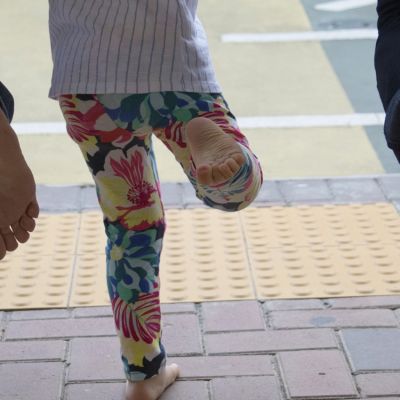Written by: Dr. Mok Chiu Yau (CEDAR China Programme Advisor)
When presented with so many suffering and adversities on earth, Christians usually respond with sympathy, expressed by charitable giving and voluntary services. But gradually, Christians may realise that the problem of suffering is too heavy and difficult to solve, therefore they think that the paramount thing is to evangelise people. The belief is that once a person (who suffers) knows Christ, he or she can have strength to persevere in the world’s suffering, be comforted by fellowship members, and eventually enters into heaven after death and never suffers. Yet, such belief is a one-sided understanding of God’s mission to believers.
God’s mission to believers is a holistic mission. We can understand it based on two biblical aspects. First, God’s mission is the foundation of our mission. Second, God’s mission is the mission of the Kingdom of God, meaning God exercising His sovereignty and transforming the heaven and earth. Believers should take obedience of and witness His sovereignty.
God’s Mission
God had His plan and mission, and He has been following it over times. At first, he created a beautiful world and entrusted the role of stewardship to mankind (Gen. 1:26-30). He also provided necessary conditions for humans to live. Then men sinned, which broke the relationship between God and men, men and men, and men and creations (Gen. 3:17-18). God then carried out His redemption and restoration plan, one that saves men from death, but also covers all creations. His blood shed on the cross reconciled men and all creations to Him (Col. 1:20). At the end, God will make all things new, and present to us a new heaven and a new earth (Rev. 21: 1,5).
The mission of God (and Jesus), from creation to redemption and renewal, is related to the well-being, and harmony of all things in the heaven and the earth. It is all encompassing. It of course surpasses the scope of things we humans usually care about, ourselves and people surround us. Jesus followed this mission from God and he gave the same mission to his disciples (Jn. 17:18). If we were to follow Jesus, our mission then ought to be concerned with all creations, the environment, and society. In fact, we cannot do everything God does, but as servants, we must follow the plan of our “big boss”. As such, believers cannot limit their mission to the traditional understanding of evangelism, saving souls, and planting churches.
Mission of the Kingdom of God
God created a beautiful world, which should be well taken care of and governed by men. However, the Devil and men defied His sovereignty, such sin brought brokenness upon the world. One theme throughout the Bible is that God will fully implement His sovereignty in the fallen world. In the Old Testament, it is described as “the Lord reigns or rules” (Ps. 47:8 ; Ps. 146:10 ; 2 Ch. 9:8 ; Is. 24:23), while in the New Testament, it is described as “the Kingdom of God” (Mt. 3:2 ; Mt. 4:23 ; Acts 1:3 ; 1 Co. 15:24-25 ; 2 Ti. 4:18). The gospel of the Old Testament is the righteous God to be the king. The paradigm of such gospel is to liberate people from the captivity of power (Is. 52:2-7 ; Ro. 10:15). In the New Testament, Jesus began His ministry on earth by proving that he could seize the authority of this world from the Devil (Lk. 4:5-8). Jesus also says that everyone can receive daily bread in His Kingdom (Mt. 6:10-11), because the “national policy” of His Kingdom requires the rich to share wealth with the poor (Mt. 19:16-23). In the final stage of the end times, God the father and Christ Jesus will reign over the kingdom forever and ever (Rev. 11:15).
In this way, the meaning of the golden sentence of the “Great Commission” (Mt. 28:18-20) that Christians are most familiar with is far more profound than simply “evangelism”. The mission of Jesus to His disciples is to witness His supreme authority and urge them to live under this authority for a new life.
In short, the mission of believers in the world of suffering should not be limited to the level of evangelism, soul saving, charity and service. It should also follow God’s mission—disciples are called to care for the whole world, the environment, and all things. Believers shall work towards implementing God’s universal governance and proclaim it to every arena of life, including personal, social, political, economic, religious, and environmental aspects.
Content of this issue
Written by: Raymond Kwong (CEDAR’s Chief Executive) and Jady Sit In recent years, the international development sector began to emphasise the importance of human inner transformation for uprooting poverty. For instance, Cornell University Professor Kaushik Basu, who serves as the chief economist of World Bank from 2012 to 2016, shared in a public lecture, that no matter what kind of models of poverty alleviation is, one of the key factors to its success is whether people are willing to let go of some of their own interests or economic benefits and seek higher purposes, with which human being in general are common, and so, he advocates strengthening values education in society. This is about changing hearts and minds….
Written by: Dr. Mok Chiu Yau (CEDAR China Programme Advisor) When presented with so many suffering and adversities on earth, Christians usually respond with sympathy, expressed by charitable giving and voluntary services. But gradually, Christians may realise that the problem of suffering is too heavy and difficult to solve, therefore they think that the paramount thing is to evangelise people. The belief is that once a person (who suffers) knows Christ, he or she can have strength to persevere in the world’s suffering, be comforted by fellowship members, and eventually enters into heaven after death and never suffers. Yet, such belief is a one-sided understanding of God’s mission to believers. God’s mission to believers is a holistic mission….
Every individuals should be entitled to basic human rights, no matter adults or children. However, in reality, millions of children are far from having their rights secured. Children’s rights is not just an ideology, but are about children’s survival, children being free from any form of abuse and exploitation, children’s entitlement to education, children’s freedom of expression and their rights to enjoy social and cultural lives. “Trust Our Children” is the theme of this year’s Barefoot Walk event. The theme responds to the spirit of the United Nations’ Convention on the Rights of the Child, on the other hand it is to call on adults to pay attention to the dire situations faced by children in developing regions. Children…
Written by: Ethel Sha (Participant of CEDAR Barefoot Walk 2017) A year ago, the chief executive of CEDAR commenced the event by sending out this command. Everybody in the hall took off their shoes and got ready to step out of their comfort zones to walk around Tseung Kwan O barefoot. Since then, I have never bared my feet to walk in the city, but to learn and be aware of the issue of human trafficking with a “barefoot” spirit. My memories of the Barefoot Walk last year are still vivid. From the moment I “applied” to work as a domestic helper overseas, to “being exploited” in labour, I discovered that I would lose power over my life…






